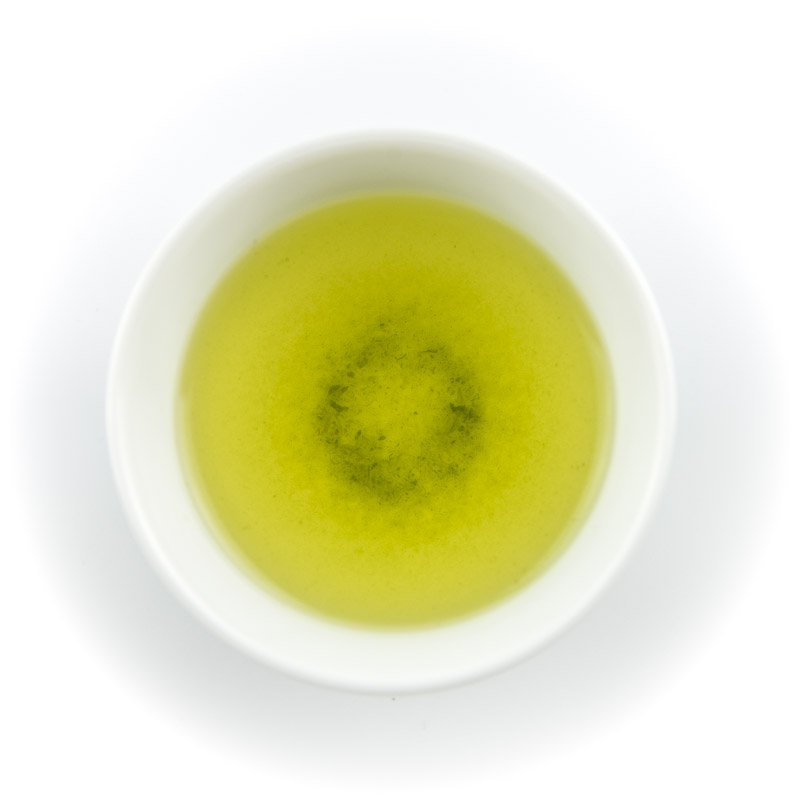JAPANESE GREEN TEA
Health & Tea
The many health benefits of green tea
In recent years, tea has become increasingly celebrated all over the world as a healthy beverage; its disease preventing and health promoting effects have been widely reported.
The components of green tea help you relaxing, rehydrating after sweating a lot, staying sharp and alert at work, during physical work or workout, lowering your cholesterol levels after eating high-calorie foods, or even fighting against viral infections. Thanks to the same substances, aroma from roasted tea will deodorize a room, green tea can be used as bath powder or for sterilizing your hands, soaking fresh fish in chilled tea will get rid of the fishy smell.
There are many substances in tea that are good for the body; we will introduce a few of them below.
- Vitamin C : Improves immunity, helps you recover from fatigue
- Caffeine : Relieves headaches, improves circulation of blood and has a diuretic effect
- Catechin : High disinfection efficency, weakens influenza viruses
These are only a few, let’s have a closer look at the components of green tea and the details of their effects.
COMPONENTS OF TEA
Water-soluble components
Water-soluble components are released in hot water during the brewing process.
Catechins (10 - 18%)
- Decreases blood cholesterol
- Body fat reduction
- Cancer prevention effect
- Antioxidant
- Antimutagen
- Tooth decay prevention, antibacterial effect
- Anti-influenza effect
- Decreases blood pressure
- Anti-hyperglycemic effect
- Bad breath prevention (deodorizing effect)
Caffeine (2 - 4%)
- Increases alertness
- (decreases tiredness and drowsiness)
- Increases stamina
- Hangover prevention
- Mild diuretic
Vitamins (0.15 - 0.25%)
Vitamin C
- Maintenance of healthy skin and mucus
- membrane (collagen formation)
- Antioxidant
Vitamin B2
- Maintenance of healthy skin and mucus membrane
Folic acid
- Prevention of fetal neural tube defects (NTD)
- Prevention of arterial sclerosis
β-carotene
- Maintenance of nighttime vision
Vitamin E
- Antioxidant
Theanine (0.6 - 2%)
- Eases the effect of the caffeine
- Neuronal cell protection
- Relaxation effect (promotes α wave production)
- Lowering of blood pressure
γ-aminobutyric acid (GABA)
- Lowering of blood pressure
Saponins
- Lowering of blood pressure
- Anti-influenza effect

COMPONENTS OF TEA
Non water-soluble components
Non-water-soluble components aren’t released in hot water during the brewing process but can be ingested by eating the tea leaves, or by using powdered green tea like Matcha.
Chlorophyll (0.6 - 1 %)
- Deodorizing effect
Fiber (Approx. 30 %)
- Helps prevent livestyle-related diseases such as cancer and cardiac diseases
Protein (Approx. 2.4%)
- Nutrition
Beta-carotene (Approx.0.02%)
- Antioxidation, antimutagen, boosts immune functions
Fluorine
- Prevention of tooth decay
Minerals
- Biological regulators (these include : Potassium, calcium, phosphorus, manganese, etc.)
Vitamin E (0.02 - 0.07%)
- Helps prevent hemolysis, reduces lipoperoxidation, anticancer, helps prevent diabetes and cataracts, boosts immune functions.

REDUCES ALLERGIC REACTION
The power of catechins
According to a group of researchers in the Uiversity of Shizuoka, allergic reactions in a mouse can be halved by giving it about 120mg of green tea per kilogram of its weight. This amount is equivalent to 10 cups of green tea for human beings.
This is thanks to the catechins that are contained in green tea. Please note that it is not recommeded to drink large quantities of strong green tea on an empty stomach since catechin can agitate the stomach. It is better to drink the right amount of green tea everyday to ease the symptoms.

STRONG BACTERICIDAL EFFECT
A natural bacteria killer

One of the components of green tea, catechin, exerts a strong bactericidal effect. It controls the functions of multiple bacteria such as Vibrio cholera and staphylococcal. Even half of one tenth of the density of green tea would kill all bacteria within 24 hours.
On the other hand, it helps with the increase of intenstinal bifidobacteria, which are good bacteria. Even if the density of the catechin is three times over the usual quantity, it does not kill the bifidobacteria.
CONTROLS CARCIGENIC RATE
Epigallocatechin Gallate
As far as cancer development is concerned, there are 2 stages :
1. When first cancel cells appear (initial stage)
2. When cancer tissues grow (proliferation stage)
It was proven that green tea reduced both the risks of incidence and proliferation of cancer in mice fed with nutrients containing green tea.
Scientists have discovered that the “Epicgallocatechin Gallate” (a type of catechin contained in green tea) reduces the incidence of cancer dramatically. Effects of green tea on cancer are still at the research stage, but there are great expectactions for green tea in this area.

